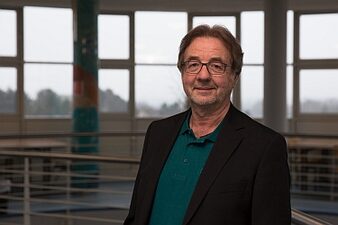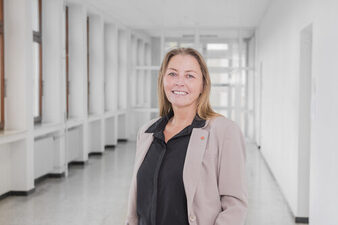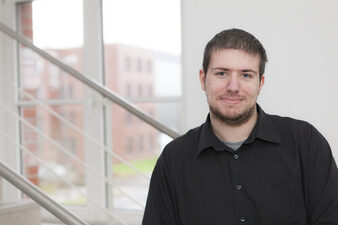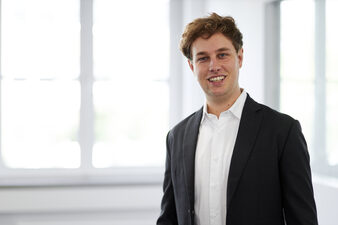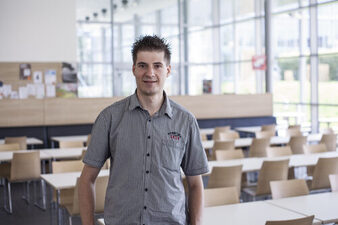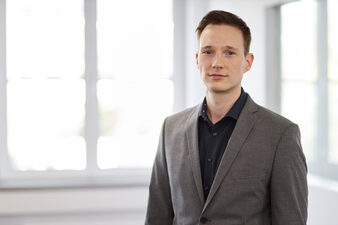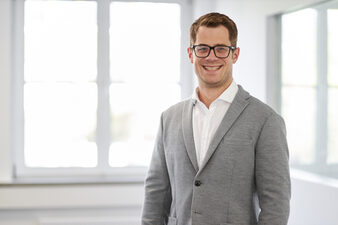About the project
The demographic trend of population aging will be one of the central challenges for our society in the upcoming years. It is essential for the society to utilize the abilities of older people. They need to be empowered to actively participate in society and to shape their own environment.
Within the project "QuartiersNETZ", we have put the focus on the direct living environment, the so-called (residential) quarter. As part of the project, which was successfully completed in fall 2018, we, together with local residents, service providers and the local authority, have sustainably created digital and tangible support services.
One central element is the Digital Neighborhood Platform, designed to connect all participants within a neighborhood and to make (digital) services available. Four districts in the city of Gelsenkirchen have been selected. Each district will be supplied with a version of the platform which will be individually customized for that neighborhood. It is also possible to combine the functional building blocks of the four variants with each other across the system. There is an emphasis on personal data protection and on dynamic extendability of the system. An innovative architecture is fundamental to ensure the distributed operation of heterogeneous neighborhood platforms and highly secure data exchange.
Additionally, we plan to use technology not only to connect people with each other, but also to assist them in their home environment. However, especially older people can be a demanding and critical user group, even though they may benefit hugely from using assistive technology.
To address this dilemma, we are going to evaluate, adapt and develop targeted smart home technology together with disabled, immobile and older people, and those less familiar with technology. These people will be able to interact with their devices according to their knowledge, skills and experiences.
A key result is the "dream control", a modular remote control which allows control of an existing smart home infrastructure via haptic input modules. The trick: The modules can be flexibly plugged in and configured so that users can construct their control a bit like 'Lego' to match the way they wish to control their environment.
In order to be able to try out and experience technology in general and the solutions created in the project in particular, technology meeting places equipped with the appropriate technology were set up for the residents of the individual quarters. The so-called tech clubs have a uniform basic equipment, including, e.g. smartphones, tablets, notebooks, smart home technology, smart boards and desktop computers. This basic equipment was supplemented in the course of the project for each individual meeting point. In a vote, the residents could decide for their respective quarters whether they prefer, e.g. extra equipment useful for "teaching and learning" or "health and independence" for their meeting place. Thanks to negotiations with sponsors and the project partner Generationnetz e.V., it has been possible to secure the operation of the tech clubs for the next five years, so people in Gelsenkirchen can sustainably be offered places to get to know, try out and also communicate technology.
The sustainability of these technical innovations should be guaranteed by a bespoke business model and the training and qualification of comitted members of the public as technology companions. The introduction and handling of new technologies for interested members of the community is made as easy as possible. At the same time, the joint implementation of technological development with all participants ensures that the solutions are adapted to the wishes and requirements of the user community. The transfer to other cities of the Ruhr area and beyond is envisaged.
The project QuartiersNETZ is funded by the German Federal Ministry of Education and Research (BMBF). Besides Fachhochschule Dortmund - University of Applied Sciences and Arts, the project partners are Generationennetz e.V., FoGera e.V., Pallas GmbH, Quinscape GmbH and Caritas Gelsenkirchen e.V.. The project is managed by Fachhochschule Dortmund and supports the development of the Ruhr area towards a healthcare and service-oriented region.
As a summary of the results, five manuals with practical tips, specific examples and sound bites from participating residents were published at the end of the project:
Manual 1:
Urban neighborhoods - Understand framework conditions and capture the current situation
Manual 2:
Service structures and supply processes in the district
Manual 3:
Develop neighborhood networks with older people
Manual 4:
Participatory Technology Development - Methodology and Implementation Examples
Manual 5:
Technical support - Establishment of initiatives to strengthen the participation of older people in the neighborhood
These publications are aimed at interested parties and professionals from municipalities, charities and organizations involved in neighborhood development for a good life in old age.
The manuals are available for download free of charge from the project website at www.quartiersnetz.de/handbuecher(Opens in a new tab) .
Funded by
Federal Ministry of Education and Research (BMBF)
Funding-ID
02K12B061
Funding program / research program
Europäischer Fond für regionale Entwicklung (EFRE)
Cooperation / project partners
- Universität Vechta
- Caritasverband Gelsenkirchen e.V.
- Generationennetz e.V.
- Forschungsinstitut Geragogik e.V.
- Pallas GmbH
- QuinScape GmbH
Contact & Team
Contact and Management
Team
- Marius Rashid Khan
- Mirco Lammert

